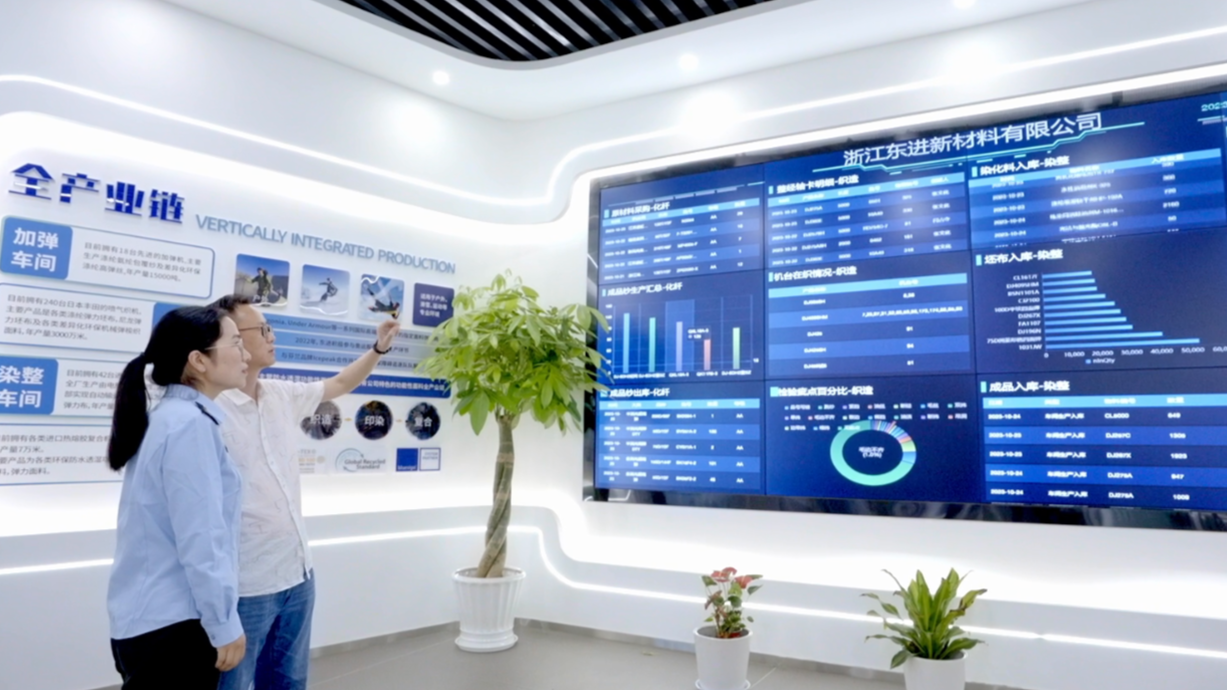Rural homestay sector among major gainers of China’s rating system to mark quality services

In Moganshan, a thriving scenic spot in Deqing county, Huzhou, East China’s Zhejiang province, Chen Chujunyi, who runs a library-themed boutique homestay, is extremely busy hosting visitors from across the country and around the world.
What distinguishes his homestay in a crowded tourism and hospitality market, Chen said, is its “certification” efforts to offer more standardized and higher-quality services.
Chen’s homestay, Map of Mogan Life, achieved a rural homestay certificate from the local market regulator in early 2023, becoming one of the five-star local homestays in the homestay rating system.
“A direct benefit of such certification is that it has led to improved guest feedback and full bookings during peak tourism seasons,” he said.
Behind the move is a broader effort by local market regulators to assist companies — small and medium-sized enterprises (SMEs), in particular — in attaining certification, which refers to the process by which a company, product, or service meets specific standards, regulations, or criteria.
Globally, common types of international certification include the International Organization for Standardization (ISO) certification, industry-specific certification such as the United States Food and Drug Administration (FDA) approval for foodstuffs and pharmaceuticals, as well as product and professional certification.
In China, the most common certification is the China Compulsory Certificate (CCC).
To promote the high-quality development of the ever-growing homestay industry in Moganshan, Deqing led the formulation of the first national rural homestay service certification requirement, launched in 2022.
Moganshan, located a three-hour drive from Shanghai is an ideal summer resort, known for its bamboo groves, natural springs, and bucolic villas. It is also an important center for rural homestays and a model and benchmark for the development of the business in China.
“Homestays differ from hotels where different job roles are clearly defined. With certifications, a lot of services and products have clearer standards, which will greatly improve our operations and manage risks,” Chen said.
Pan Genliang, deputy director of the Deqing Administration for Market Regulation, said, “The certification clarifies service processes and staff responsibilities, optimizes procurement control, and fosters continuous services improvement.”
As more travelers use homestays, there have been growing consumer disputes. Some homestays enhance their photos to attract guests, which leads to discrepancies between expectations and reality, causing dissatisfaction and complaints, Pan said.
“With certifications, evaluators check-in and experience the services incognito. This allows them to accurately and realistically assess the actual service quality of the homestay,” he said, adding that the county also has third-party certification agencies.

In Deqing, each certification for rural homestays is valid for three years, with annual evaluations. If standards are not met, certificates can be revoked, Pan said.
With such efforts, a total of 112 rural homestay service certificates have so far been issued. The booking rate of certified homestays exceeds 90 percent, and complaints on such homestays decreased by 15 percent year-on-year in 2023, said the local market regulator.
In addition to homestays, Zhejiang’s market regulator has expanded certifications to cover other unrelated aspects and sectors, from 23 types in 2021 to 131 now, including navigation products and services, integrated circuits, and eldercare services.
The transformation and growth of Deqing’s homestay sector through quality certification is just a snapshot of China’s efforts to help SMEs enhance their quality management capabilities and market competitiveness.
In China, SMEs contribute to about 50 percent of taxes, 60 percent of GDP, and 70 percent of technological innovation, according to the Ministry of Industry and Information Technology. They play an important role in improving people’s livelihoods and promoting common prosperity.
However, as the number of SMEs continues to grow, they inevitably encounter problems such as inefficient quality management and weak quality control systems, industry experts said.
To tackle such growth pains, China launched an action to improve quality management system certification for SMEs in 2020 to enhance their quality management capabilities and market competitiveness.
Yao Lei, deputy head of the certification supervision department of the State Administration for Market Regulation, China’s top market regulator, said that such an action has made significant progress over the past few years.
“Since 2023, 1,108 incentive policies have been issued nationwide to help SMEs to certify their businesses, including offering financial support to certified companies,” Yao said.
Last year, more than 32 billion yuan ($4.4 billion) of financial support was offered to companies participating in such an action plan, benefiting over 30,000 SMEs.
In 2023, participating SMEs have seen their annual revenue increase by an average of 10.2 percent, product sales rise by 10.9 percent, profit margins grow 8.3 percent, and quality cost control rates decrease by 6 percent, Yao said.
Industry experts believe that in light of global economic uncertainties, enhancing the competitiveness of SMEs and promoting their high-quality development is especially urgent, and the move will play an indispensable role in advancing the development of new quality productive forces for the nation’s economy.
Yang Tao, head of a high-tech materials company from Tianjin, said that the company previously struggled with low certification and qualification rates, leading to delayed deliveries.
“But after local market regulators conducted thorough inspections to help the company diagnose production and quality issues, including equipment modifications and layout adjustments, the company greatly improved its production efficiency,” Yang said.
Yang added that the company’s product qualification rate was lifted from 90.7 percent to 98.3 percent year-on-year last year and operating costs have been reduced by 8.7 percent over the period.
In addition, provinces and regions across China have been tapping increasing efforts on certification to help boost product quality and increase competitiveness.
In East China’s Fujian province, leading sportswear company Anta has launched its first eco-friendly shoes, which have received certification.
Producing 100 pairs of these shoes can save 170 kilowatt-hours of electricity and reduce carbon dioxide emissions by 41.9 kilograms, the company said.
Another Fujian company, Huatai Group, has developed ceramic construction panels and received the China Green Product certification, making it the first such certification in the sector in China.
As the country continues to promote certification efforts, the State Administration for Market Regulation also released, in December 2023, a revised regulation on industry standards with a focus on preventing the use of such standards to restrict competition.
The regulation, which took effect in June this year, aims at continuously improving the business environment and unleashing the vitality of business entities.
For instance, it prohibits using industry standards to set incentive qualifications, issue licenses and certifications, or make approvals and registrations.
It also forbids the government to exclude and restrict market competition through industry standards and certifications.


